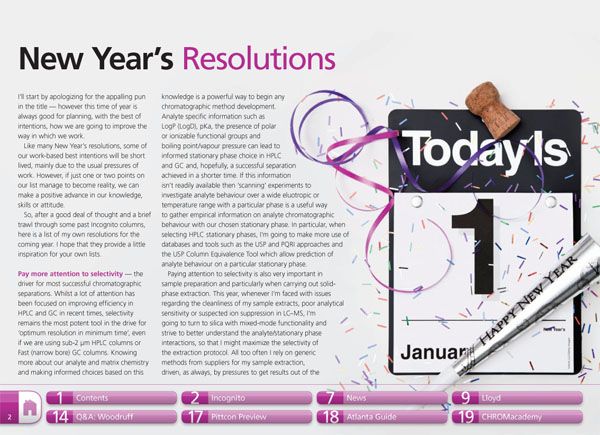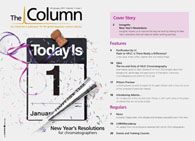New Year's Resolutions
Incognito inspires us to improve the way we work by sharing his New Year's resolutions that will make for better working practices.
I’ll start by apologizing for the appalling pun in the title — however this time of year is always good for planning, with the best of intentions, how we are going to improve the way in which we work.
Like many New Year’s resolutions, some of our work-based best intentions will be short lived, mainly due to the usual pressures of work. However, if just one or two points on our list manage to become reality, we can make a positive advance in our knowledge, skills or attitude.
So, after a good deal of thought and a brief trawl through some past Incognito columns, here is a list of my own resolutions for the coming year. I hope that they provide a little inspiration for your own lists.
Polysorbate Quantification and Degradation Analysis via LC and Charged Aerosol Detection
April 9th 2025Scientists from ThermoFisher Scientific published a review article in the Journal of Chromatography A that provided an overview of HPLC analysis using charged aerosol detection can help with polysorbate quantification.
Removing Double-Stranded RNA Impurities Using Chromatography
April 8th 2025Researchers from Agency for Science, Technology and Research in Singapore recently published a review article exploring how chromatography can be used to remove double-stranded RNA impurities during mRNA therapeutics production.















